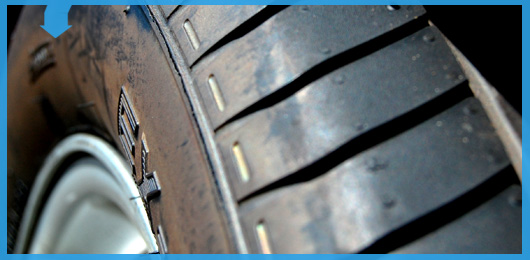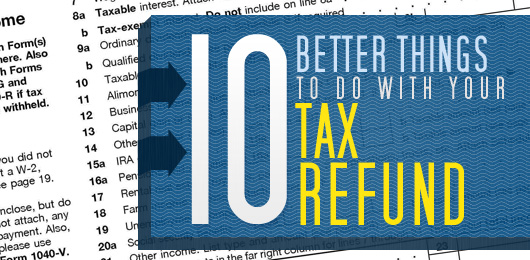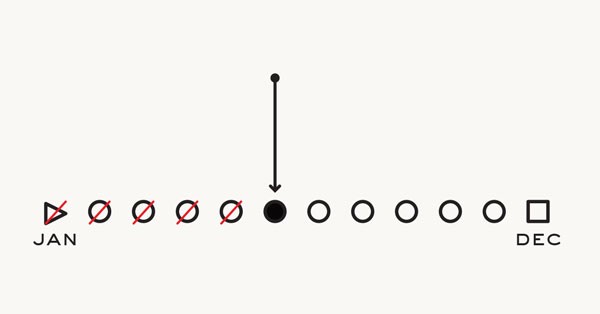Tax refund time is upon us again. How do you plan on spending your big tax rebate from Uncle Sam? Splurging on fleeting indulgences like you did last year and the year before that? Squirreling it away like a miserly scrooge? If you consistently find yourself at either extreme on the spend vs. save spectrum, then it’s high time that you change things up by finding something better to do with your tax refund this year.
Here are a few ideas to get you started:
Make Your Dollars More Valuable
The top three things you should do with your tax refund all revolve around the same idea: making your dollars do more work. If your financial landscape is a battlefield (the enemy being debt and despair), then each of your dollars is a soldier. It’s absolutely critical to send reinforcements to the areas where you are losing ground first. Then, take advantage of the areas where you have the high ground.
Okay, enough metaphor, here’s what I mean:
1. Pay Down High Interest Debt
A penny saved is a penny earned, says Benjamin Franklin. But he didn’t have five maxed out credit cards. Stuffing your tax return into a high yield savings account that earns 3% APY is about the dumbest thing you can do if you have credit card debt that accrues a 19.99% finance charge every month.
Even if you invest your $3,000 in a rock-solid ETF or index fund that earns 7%, if you don’t eliminate that $3,000 of debt you have on your 19.99% credit card, you still have a return of -12.99%.
Bottom-line: You can’t make money until you stop losing money.
2. Fund Your Retirement Accounts
What’s better than $3,000 in the bank? Answer: $6,000 in the bank. While the recession caused many employers to roll back the perks and benefits, many companies still match contributions to your retirement fund up to a certain amount. Find out what this amount is and max it out. Those dollars that your employer matches is 100% free money, and because you’re investing it, it could be even more down the road.
You might be worried that putting money in your retirement fund is “locking it up.” But don’t be. There are cost-effective ways to withdraw or borrow money from most retirement accounts that help you handle the big expenses down the road. For example, first-time homebuyers can withdraw up to $10,000 from an IRA without incurring tax penalties.
3. Build an Emergency Fund
Money is more expensive when you are desperate. An emergency fund will save you from the high costs of getting a personal loan, maxing out a credit card or financing medical fees in case of the unthinkable.
When your bank account is dry, yet you have an unavoidable expense, you have just three options: pay 5%, 10%, 20% or more to borrow from a lender, sacrifice your dignity and borrow from your parents or pay nothing and borrow from yourself via an emergency fund.
The best time to start your emergency fund is after you have already paid down your high interest debt and gotten your free money from your employer via retirement fund matching. But once you get that licked, create a separate high yield savings account specifically earmarked for emergencies only. Or better yet, create a CD ladder so you get a bigger return while maintaining liquidity.
Improve Your Home, Transportation and Wardrobe
Your house or apartment, your bike or your car and your jeans or suit are the infrastructure of your life. Improving these areas can save you time and money in the long run.
Here are a few good areas to focus on:
4. Invest in Eating In
One of the best ways to save money is to eat out less often. But one of the greatest barriers to eating in is having the tools and/or know-how to create satisfying meals at home. This is actually an old tip from frugality icon Trent Hamm, who recommends getting a deep freezer, stand mixer or some other appliance that will help you prepare your favorite foods at home. You might even want to take a cooking class or two.
My suggestion: watch a few seasons of Good Eats and buy whatever Alton Brown tells you to.
5. Fix Your Car
Obama may have received his fair share of ridicule for it, but he was right on the money when he implored America to properly inflate their tires. There are little things and big things that you can have done to your car in the shop to lengthen its life and improve your fuel economy. I recommend reviewing FuelEconomy.gov’s Keeping Your Car in Shape list and also Car Talk’s Guide to Better Fuel Economy. Lots of action items here that can help you use up an extra wad of cash in a smart way.

6. Buy Clothes that Will Last
As a Primer man, you should already know how to dress yourself for success. From socks and shoes to suits and sunglasses, we’ve given you more than enough advice on how to be more dapper for your dollar. But how much of this advice have you put into practice?
Take a few hundred dollars or so and invest it strategically towards your wardrobe. Take stock of what you own and what you don’t own and buy something high quality and long lasting for every garment or accessory that you need. Don’t be afraid to spend a little more, get something tailored or special order something. Because in the end, this is going to save you money.
How many times have you stopped at Wal-Mart on the way to a wedding to get some ugly black socks that you threw away the next day? Or settled on an ill-fitting suit because you had a job interview the next day?
Use some of your extra cash to slowly and steadily build up a wardrobe that you’ll enjoy for years to come. You’ll look better and you’ll spend less.
Build Your Brain
Blowing your tax refund on something materialistic will bring you joy for about a year, if you’re lucky. But turning your money into knowledge or skills will pay dividends for the rest of your life. If you’ve got the attention span for it, go out and buy yourself a book and go through it from cover to cover. But if you’re like pretty much everyone else, try some of these instead:
7. Learn Something Online

For my birthday last year, I treated myself to a subscription to Lynda.com. In a span of three months, I learned PHP and MySQL, boned up on HTML5 and CSS and got a crash course in DreamWeaver.
Total cost: $75.
The investment is small, and it gets you a veritable all-you-can eat buffet worth of online software tutorials from experienced trainers. I think I learned more in those three months than I did in my last semester of college.
There are other online learning opportunities available, such as MediaBistro’s writing/publishing courses and seminars, software training from TotalTraining.com and digital photography courses from KelbyTraining.com. While you won’t get the prestige of a certificate or degree, it’s a great way to learn new skills or brush up on old ones.
Get the ball rolling on some new skills that interest you—I guarantee that it will fire up your motivation and open up new doors of opportunities for you.
8. Learn Something in Real Life
As a certifiable shut-in, I’m the last one to suggest leaving the house. But I can grudgingly admit that there are some real benefits to doing so. Now that you’re out of college, busy with work and perhaps in a steady relationship, the chances of you meeting someone who shares your interests are slim, slim, slim. That’s why learning something in the flesh may be especially beneficial.
Check out the websites at your local community college, business association or church and see what kinds of continuing education opportunities they have. It can be something as sharky as ToastMasters International or as frivolous as a cake decorating class. Really, anything you do that sits you next to a stranger is good.
It’ll take more time, energy and money to do this, but it’ll be worth it. And even if you don’t successfully get your network on, you’ll still have the benefit of that class, course or program.
9. Hire a Pro
Classes, courses and training modules are good for the self-motivated. But if you find that you lack discipline or could benefit from a little handholding, hiring a professional can really make a difference. Choose a goal and then decide what kind of professional would be the best person to help you achieve it.
Want to get fit? Hire a personal trainer.
Want to get started on that side business? Hire a business coach. (Or talk to a business counselor for free.)
Want to become more self-aware, more effective and more focused all-around? Hire a personal life coach.
Want to reach your financial goals on time? Hire a financial planner.
The beauty of a paid consultancy is that you’ll continue to benefit from their services long after your relationship ends. Hopefully, you’ll have learned how to be disciplined in your workout regimen or how to analyze and improve your business or how to invest your money wisely or how to simply better know thyself.
10. Surprise Yourself
Most of the items on this list may seem a bit on the stuffy, overly responsible side. And yeah, we understand—you just got a big hunk of change. You want to have a little fun. That’s absolutely fine—you can and should splurge a bit with your windfall. But make sure you do something special with it. Don’t go to that same bar you go to every weekend and buy everyone shots. Don’t spend it on another video game or some other timewaster.
Splurge on a unique experience. Go somewhere for the weekend. Plan a special date with your significant other. Do something unconventional but charitable, like taking a group of homeless folks out for dinner or buying a ping pong table for the local Boys & Girls Club or microfinancing at Kiva.
Think of it this way: Try to remember what you did with your tax refund last year. Now, try to remember what you did for your birthday or anniversary or for Halloween. Which was more memorable?
My advice: make your tax refund its own unofficial holiday. Put as much effort into making it as memorable and special as you would a bachelor party or birthday celebration. Go ahead and splurge, but do it right.
Conclusion
All of the above are just ideas. You won’t likely have enough money from your tax refund to do them all—and if you do, then you should seriously tweak your withholding—but the theme here is pretty clear. First, invest your money where it’ll do the most work for you. Next, spend some money on bettering yourself or your lifestyle. Then, enjoy what’s left in a meaningful or memorable fashion. If you achieve some or all of those objectives, then no one will be able to say that you squandered your tax refund.
















